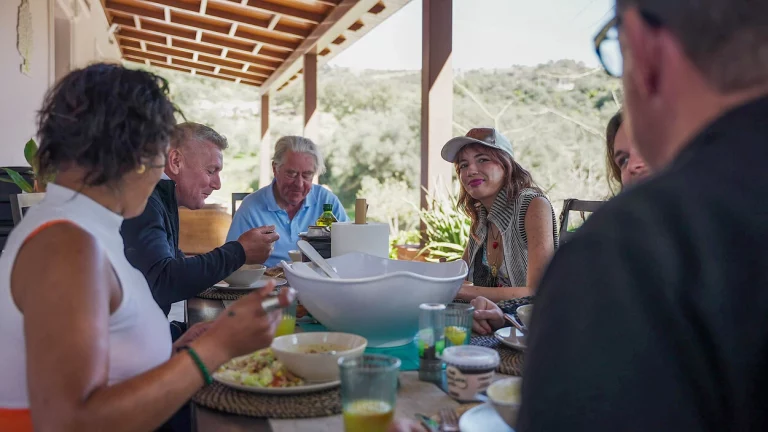
If you’ve found yourself gambling more than you intended or chasing losses you can’t afford, you’re not alone. Gambling addiction, also known as problem gambling or compulsive gambling, is a serious but treatable condition that affects millions of people worldwide.
Unlike alcohol or drug addictions, gambling problems aren’t caused by a substance. They’re driven by powerful urges and the easy access to online casinos, sports betting, and mobile gambling apps. With just a few clicks, anyone can gamble anytime, anywhere, and this accessibility can make it incredibly hard to stop.
Gambling addiction can lead to severe financial stress, relationship problems, and even mental health challenges like anxiety or depression. Many people describe feeling trapped or wanting to quit, but constantly drawn back by the hope of a big win.
The truth is, gambling addiction is recognized globally by mental health professionals as an impulse control disorder. It’s listed in the DSM-5 and acknowledged by the World Health Organization (WHO) as a behavioral addiction. This means it’s a medical condition, not a lack of willpower, and recovery is absolutely possible.
Understanding that gambling addiction can manifest in different forms and levels of severity is key to addressing it effectively. Whether it’s casino gambling, sports betting, or online gaming, the impact can be just as severe. Promoting responsible gambling practices and providing global support networks are essential steps in helping individuals recover and regain control of their lives.
Why do people gamble and what is “problem gambling”?
In many parts of the world, gambling is widely accepted as a normal form of entertainment. Whether it’s placing a bet at a local bookmaker, visiting a casino, or playing on an online gambling site, it’s often seen as harmless fun, something that adds excitement to life.
With most countries allowing adults (typically 18 or older) to gamble legally, opportunities are everywhere: from sports betting and slot machines to poker apps and digital casinos. Even though many people understand the risks of gambling, it’s become a common social activity, often tied to major sporting events or local traditions.
For some, it starts innocently, a small wager with friends or an occasional online game. But because gambling is so easy to access and so socially accepted, it can quietly shift from entertainment to addiction without clear warning signs.
The thrill of gambling
Gambling offers something few other activities can match: a rush of excitement and anticipation. The moment of uncertainty (not knowing whether you’ll win or lose) releases powerful brain chemicals like dopamine, creating a genuine sense of thrill.
Betting companies often emphasize this feeling in their marketing, suggesting that having money on the line makes watching sports or playing games more exciting. That thrill can start small, maybe a few spins on a slot machine, a round of online poker, or a friendly card game.
But for some people, what begins as fun can slowly turn into something deeper and more dangerous. The real addictive pull often isn’t about winning money, it’s about chasing the intense emotional high that comes with taking a risk.
Why people keep gambling
Many people start gambling for the pleasure of winning, but they continue because of the adrenaline rush that comes from risk itself. Over time, this excitement can become more powerful than the desire to win.
That’s why someone can lose repeatedly yet still feel drawn back to gamble again, it’s not always about the money anymore. The thrill, the hope, the “maybe this time” feeling becomes the real addiction.
Understanding this is key to recognizing problem gambling behavior. When gambling stops being just entertainment and starts becoming a compulsion, it’s a sign that help might be needed.
If you’ve noticed that gambling is starting to take over your thoughts, your time, or your finances, you’re not alone and there is help available. To support you on this journey, we’ve developed a free and confidential online self-assessment. This quick test can help you evaluate your habits and determine whether you may be facing a problem.

How to stop gambling and save money
Acknowledging you have a gambling problem is the first and most powerful step toward recovery. At InnerLife Recovery in Marbella, Spain, we offer a peaceful and supportive environment where you can begin your journey to healing from gambling addiction.
Our treatment process combines personalised care with a blend of counselling, Cognitive Behavioral Therapy (CBT), and 12 Step programs, alongside holistic practices like yoga and meditation. We also emphasise the importance of family engagement and provide comprehensive lifetime aftercare support to ensure long-term recovery. Our gambling rehab program is designed to address the emotional, psychological, and behavioural aspects of addiction, providing a nurturing environment for healing.
Personalised Care for Gambling Recovery
Every person’s experience with gambling addiction is unique, which is why every treatment plan at InnerLife Recovery is tailored to the individual. Our compassionate clinical team works closely with each client to identify the underlying emotional and behavioral triggers that drive addictive gambling patterns.
We believe in empowering our clients, helping them regain control, rediscover their purpose, and build a sustainable life free from addiction.
Support, Guidance, and Community
Recovering from gambling addiction takes more than therapy alone. Our clients benefit from a strong community of understanding and empathy, where they can share experiences and support one another.
We also recognize that financial stress is a major part of gambling addiction. InnerLife Recovery provides specialized guidance to help clients manage these challenges and rebuild financial stability, ensuring that recovery includes practical, real-world healing.
Support, Guidance, and Community
Gambling recovery doesn’t end when treatment does, it’s an ongoing journey. At InnerLife Recovery, we prepare our clients for long-term success through relapse prevention strategies, emotional resilience training, and ongoing aftercare.
Our goal is to help every individual not only overcome gambling addiction but to emerge stronger, more self-aware, and equipped for a fulfilling, addiction-free life.
Gambling Addiction Treatment in Spain at InnerLife Recovery
At InnerLife Recovery, we specialize in treating addiction, mental health disorders, and eating disorders in a compassionate, private, and personalized setting.
If you or a loved one is struggling with gambling addiction experienced team can help. We offer holistic, trauma-informed treatment that addresses both the addiction and the underlying emotional pain.
📞 Reach out today to learn more about our residential treatment programs. We’re here 24/7h available to help you recover and rebuild.
Contact us today for an obligation-free confidential consultation.






